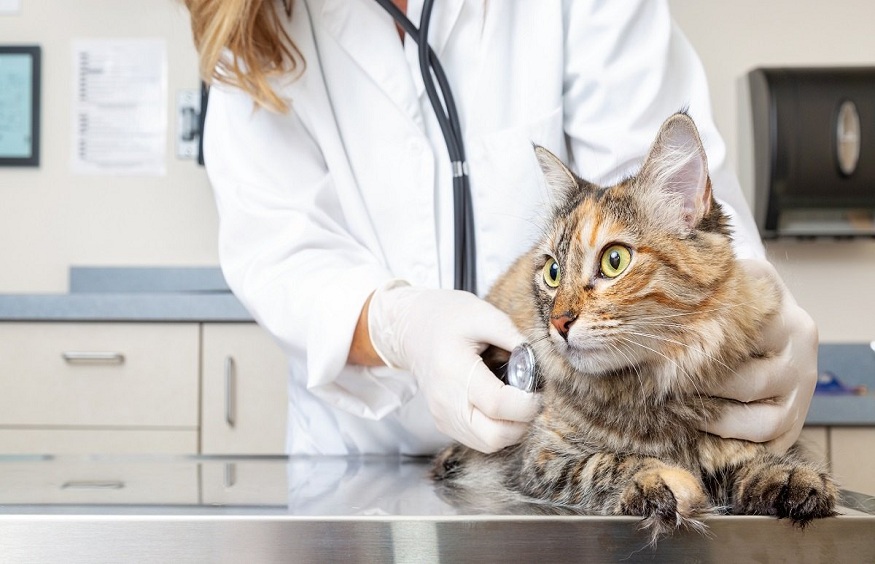How to Spot the Signs Your Pet Needs a Vet (Before It’s Too Late)

As a pet owner, you are responsible for the health of your cute, beloved pet. However, pets often communicate their health issues in subtle ways, making it crucial to recognize warning signs early.
If you live in San Antonio, TX, and notice any troubling changes in your pet, visiting a trusted veterinarian can make all the difference in their health. Here’s a guide to help you identify when to call a veterinarian in San Antonio, TX, for a checkup.
1) Odd Eating Habits
Skipping a meal isn’t unusual, especially during hot weather. However, if your pet refuses food for more than two days, it’s a cause for concern. Changes in eating behavior—like raiding the trash when they never have before—can also hint at diseases such as diabetes or thyroid issues.
2) Excessive Thirst
Monitoring your pet’s water intake is vital. Drinking more than usual may signal kidney disease or diabetes. Signs include frequent urination, accidents indoors, or a constantly empty water bowl. If you observe these changes, schedule a vet visit.
3) Changes in Coat and Skin
A healthy coat is shiny, soft, and thick. If your pet’s fur becomes dull or rough or develops bald patches, it could indicate allergies, poor nutrition, or a skin condition. A veterinarian can assist in determining the reason and provide the essential treatment.
4) Vomiting, Diarrhea, or Stool Changes
Occasional vomiting or diarrhea may not be alarming. Still, frequent episodes or changes in stool appearance—such as blood, mucus, or a black, tarry consistency—can point to serious gastrointestinal problems. Pay attention to these signs and consult your vet promptly.
5) Limping or Dragging Feet
If your pet starts limping or dragging their feet, it might be due to injuries, broken bones, or neurological issues. Since pets often try to mask their pain, such changes in movement are a strong indicator they need medical attention.
6) Discharge from Orifices
Unusual discharge from the eyes, nose, ears, genitals, or anus often signals infections or infestations, such as ear mites. Infections can worsen without treatment, so it’s best to have a vet examine your pet.
7) Oral Health Problems
Dental issues are frequently overlooked but can significantly impact your pet’s health. Watch for bad breath, tartar build-up, or difficulty chewing. Swollen, bleeding gums or broken teeth are additional red flags. Regular dental checkups ensure your pet maintains a healthy, pain-free mouth.
8) Lethargy or Decreased Activity
If your pet’s playful energy has decreased significantly, it’s worth noting. While occasional tiredness is normal, persistent lethargy can indicate health issues like anemia or pain. This could affect their overall well-being. Younger pets should maintain their energy, so if you notice a drop in activity, consult your veterinarian for advice on rest, diet, or treatments.
9) Emergency symptoms
Specific symptoms demand immediate attention. If your pet exhibits any of the following, head to an emergency vet clinic without delay:
- Difficulty breathing.
- Severe pain, indicated by whining, shaking, hiding, or agitation.
- Seizures or sudden unconsciousness.
- Major wounds, broken bones, or injuries from trauma.
- Ingestion of toxic substances, foods, or foreign objects.
- Bleeding from the mouth, nose, or eyes.
- Repeated vomiting or vomiting blood.
- Stiff, swollen abdomen.
Ignoring these signs could worsen your pet’s condition, so swift action is essential.
Conclusion
Pets rely on us to notice the subtle and severe signs of illness. Whether it’s a minor issue like changes in eating habits or an emergency like difficulty breathing, staying observant is key.
If you’re in San Antonio, TX, and notice something off with your pet, contact a trusted veterinarian promptly. Early care is crucial for your pet’s long-term health and happiness.






